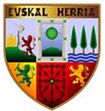
The Basque language (Euskara) is spoken by an estimated 1,000,000 people living in the Basque Country of north-central Spain and southwestern France. About 200,000 Basques live in other parts of the world. Litt
le is known of its origins but it is likely that Euskara is the only remnant of the languages spoken in Western Europe before the arrival of the Indo-European languages to the area. Basque is a language genetically isolated as it has no known linguistic relatives. Its grammar is markedly distinct from that of all other western European
languages. Before the Roman times there is not a single written word which can be safely regarded as being of Basque origin. Throughout history, the Basque language has taken up words not only from Latin, Castilian and French, but also from Celtic and Arabic. On the other hand some words in Castilian, French and English come from the Basque language. The Basque alphabet is identical to the English and the language has no standard phonology.
I am a layman, how can I hire translation services provider?
The first serious linguistic work on the Basque language was carried out by the German linguist and philosopher Wilhelm von Humboldt. He held the view that Basque was a continuation of the ancient Iberian language. His linguistic approach, however, is considered somewhat backwards by modern researchers.
The Basque language is an inflected language whose origin is still somewhat puzzling. The fact that it is not an Indo-European language, and shows no resemblance to languages in neighbouring countries, has inspired many scholars to search for its possible relatives elsewhere. Owing to some similarities with the Georgian language, some linguists think it could be related to languages from the Caucasus. Others relate the language to non-Arabic languages from the north of Africa. One of the most likely hypotheses argues that the Basque language developed “in situ”, in the land of the primitive Basques. That theory is supported by the discovery of some Basque-type skulls in Neolithic sites, which ruled out the thesis of immigration from other areas.
However, all hypotheses on the origin of Basque are controversial, and the suggested evidence is not generally accepted by most linguists.
